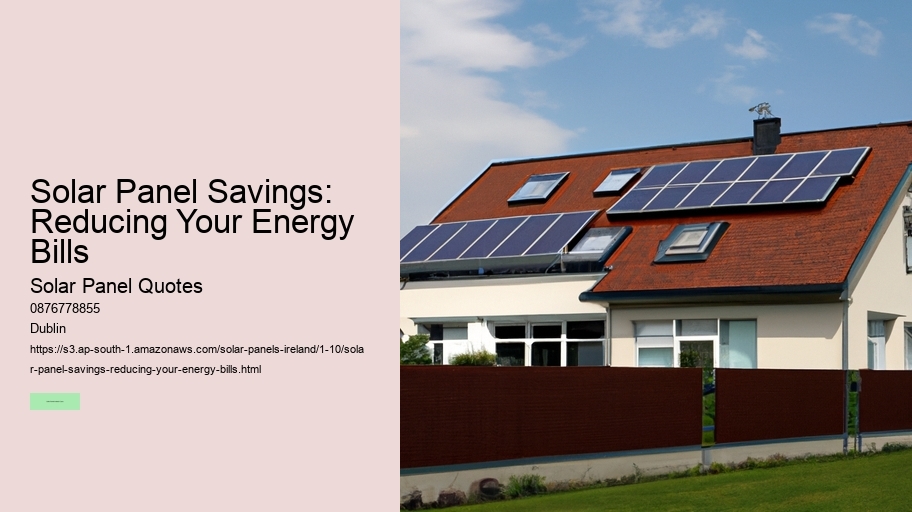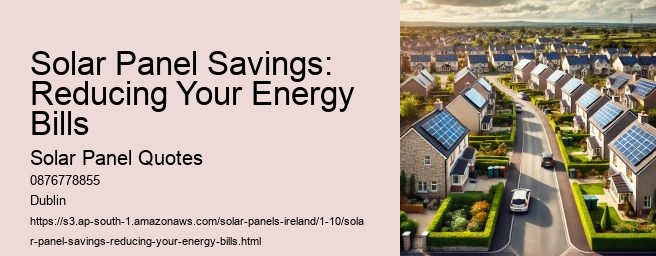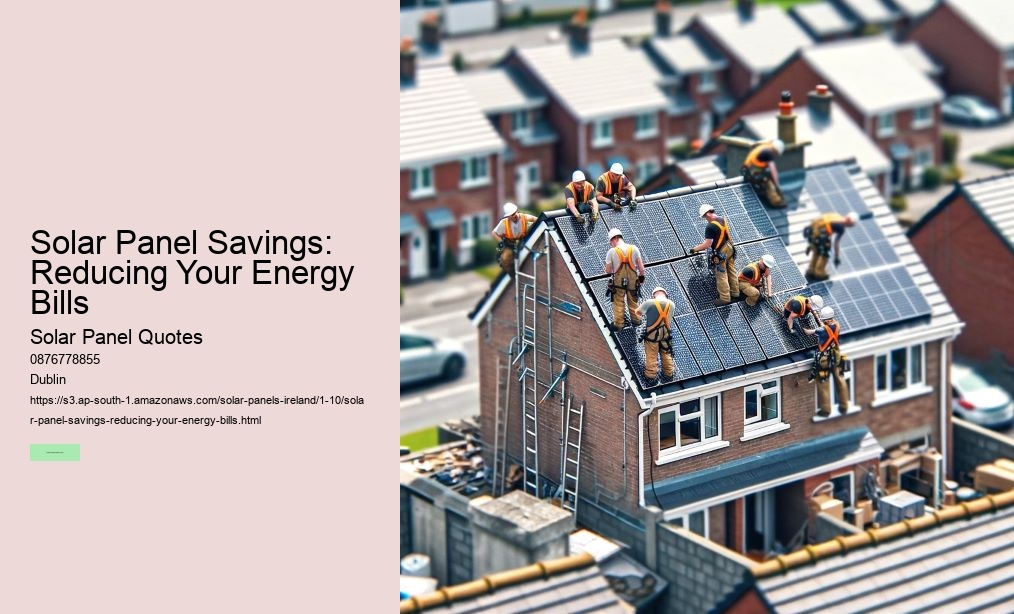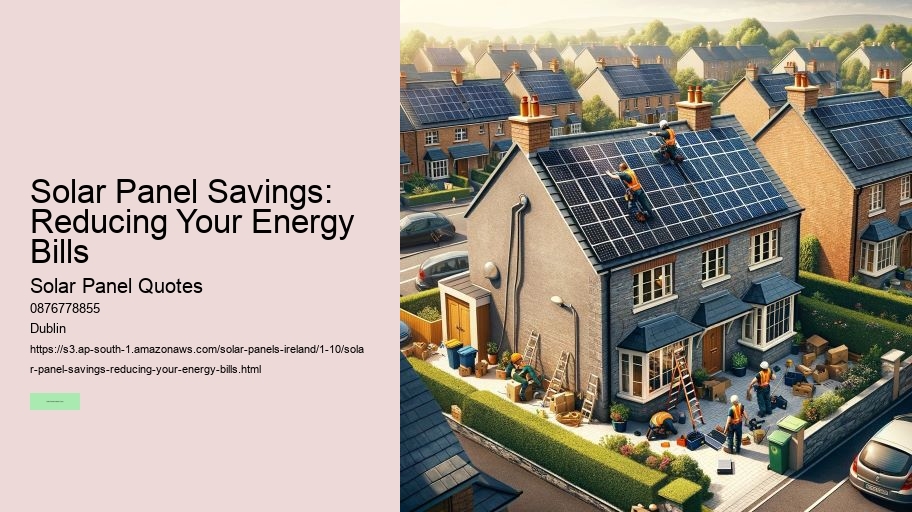

In terms of cost-effectiveness analysis, solar panels stand out as a smart investment. The payback period for solar panel installations in Ireland typically falls between five and seven years. Advanced energy storage systems can be scaled over time, starting with a smaller capacity and expanding as energy consumption increases.
The payback period for solar panels in Ireland typically ranges from five to seven years. looking for the cheapest solar panel ireland cost then checkout solar panel quotes. Financial support and incentives play a crucial role in making solar energy accessible.
The Sustainable Energy Authority of Ireland (SEAI) offers grants of up to €2,400 for solar photovoltaic (PV) installations. A professional site assessment can help identify the most suitable system configuration for your home, ensuring maximum efficiency.
The cost of electricity by source has been steadily increasing, and solar power provides a predictable and stable way to lower energy bills over time. Solar panels also increase property value.
Advanced systems allow for seamless integration with hybrid vehicles and electric vehicle battery chargers, making them a smart investment for homes transitioning to sustainable energy. Solar panels are a long-term investment with a lifespan of 20 to 25 years or more. This process, supported by feed-in tariffs, not only rewards homeowners financially but also strengthens the country's renewable energy infrastructure.
For instance, monocrystalline silicon panels, known for their higher efficiency, are often preferred despite their higher cost compared to polycrystalline silicon options. By integrating solar thermal energy with your setup, you can further reduce household energy consumption while enhancing sustainability.
Additionally, they support the heating of water for domestic use, further reducing overall energy consumption. Solar Panel Ireland Cost: A Comprehensive GuideWhen talking about solar panel installation in Ireland, understanding the costs and benefits is essential for anyone considering a move to renewable energy.
The combination of reduced electricity bills, environmental benefits, and increased property value makes solar energy an attractive choice for homeowners and businesses alike. For homeowners and businesses in Ireland, solar panels provide an effective way to achieve energy independence, lower costs, and contribute to a more sustainable planet.
Investing in solar panels is a decision that benefits both your household and the planet. Similarly, surplus energy stored in home energy storage systems can power essential appliances during grid outages, offering peace of mind and independence from fluctuating electricity prices. During this time, homeowners benefit from significant reductions in their electricity bills, often saving up to €1,000 annually.
On average, solar panels pay for themselves within five to seven years, depending on the size of the system and energy usage. Government incentives in Ireland help reduce the financial burden of solar panel installations.
These systems integrate seamlessly with existing boilers and smart meters, ensuring optimal energy management. Solar inverters play a critical role in converting the direct current (DC) produced by solar panels into alternating current (AC) used in homes.
Solar panels are more than an investment-they are a commitment to sustainability, energy independence, and long-term financial benefits. Ireland's variable climate might raise concerns about solar energy's reliability, but advancements in solar technology ensure consistent performance.


The microgeneration of solar power also enables homeowners to feed excess electricity back into the grid, earning credits through Ireland's feed-in tariff system. Options range from small systems suitable for basic needs to larger setups capable of supporting extensive energy storage. Thin-film solar cells, though less commonly used, are an option for unique installations or areas with lower sunlight exposure.
With a smart meter installed, households can monitor energy production, consumption, and export rates, maximizing the financial benefits of their solar systems. Advances in solar technology, including improved cell designs and materials, further enhance reliability and performance.
With the continued rise in electricity prices in Ireland, solar energy offers a reliable and cost-effective alternative to traditional energy sources. Rechargeable batteries allow homeowners to store excess energy generated during the day for use at night or during periods of low sunlight.
When discussing the cost of electricity by source, it's clear that solar energy offers a competitive edge. These batteries can also provide backup power during grid outages, ensuring reliability and reducing dependence on the electrical grid.

While the initial investment may seem substantial, the long-term savings and benefits make it a cost-effective choice. By exporting excess electricity back to the grid, homeowners contribute to Ireland's renewable energy goals while earning additional income. They also provide warranties and ongoing support, giving you confidence in your investment.
Government incentives and VAT reductions make solar panel installation more affordable, and the long-term savings and environmental benefits make this renewable energy solution an increasingly attractive option for Irish households. Monocrystalline silicon panels, known for their efficiency and longevity, are ideal for properties with limited roof space.

Solar energy also supports sustainable living by minimizing your carbon footprint and promoting renewable energy. These systems work seamlessly with electric heating solutions, hybrid vehicles, and even solar water heating systems to deliver a comprehensive approach to energy sustainability. This financial support aligns with Ireland's commitment to sustainable development and environmentally friendly practices, encouraging more people to adopt solar energy solutions.
This time frame reflects the savings from reduced electricity bills and income generated from exporting surplus energy back to the grid through the Microgeneration Support Scheme. Dublin Although batteries increase initial costs, they enhance the system's efficiency and long-term value.
Maintenance of solar panels is straightforward and cost-effective. The installation cost depends on various elements, including the number of panels required to meet your household's energy consumption, the type of solar panels used, and optional features like energy storage.
These systems are especially valuable during power outages, ensuring continuous energy availability. The Sustainable Energy Authority of Ireland (SEAI) offers grants of up to €2,400 for solar PV installations, while the removal of VAT on solar panels since May 2023 further reduces upfront costs.
For example, they can charge electric vehicles, supporting the transition to cleaner transportation. They also provide a reliable backup during power outages. Polycrystalline silicon panels, while slightly less efficient, are more affordable and offer a good balance of cost and performance.
For Irish homeowners, the investment typically ranges between €6,000 and €18,000, influenced by factors such as system size, energy needs, and optional features like energy storage. By consulting with solar panel companies, homeowners can receive personalized recommendations based on their specific energy needs and roof conditions.
This approach supports sustainable energy development and aligns with global trends in reducing reliance on traditional power systems. The total cost of a solar panel system includes components such as the panels, inverters, batteries, and installation services.
With government incentives, advanced technologies, and proven long-term savings, solar panels are transforming the way energy is consumed in Ireland. These systems integrate seamlessly with existing setups, reducing overall energy consumption and costs.

Yes, there are several financing options available in Ireland for solar panel systems, including loans, leases, and Power Purchase Agreements (PPAs).
Monocrystalline panels are made from a single crystal structure and are more efficient, while polycrystalline panels are made from multiple crystal fragments and are more cost-effective.
Monocrystalline solar panels offer high efficiency and longevity, making them ideal for maximizing output in areas with limited space.
The average cost of installing solar panels in Ireland ranges from €6,000 to €18,000, depending on the size and specifications of the system.
Solar panels require minimal maintenance, primarily involving regular cleaning and periodic checks to ensure they are functioning optimally.
Yes, the Irish government offers several incentives, including SEAI grants and a reduction in VAT on solar equipment to promote solar energy adoption.
Monocrystalline panels are made from a single crystal structure and are more efficient, while polycrystalline panels are made from multiple crystal fragments and are more cost-effective.
While solar panel efficiency can be impacted by Ireland’s variable weather, modern technology allows panels to still generate significant energy even on cloudy days.